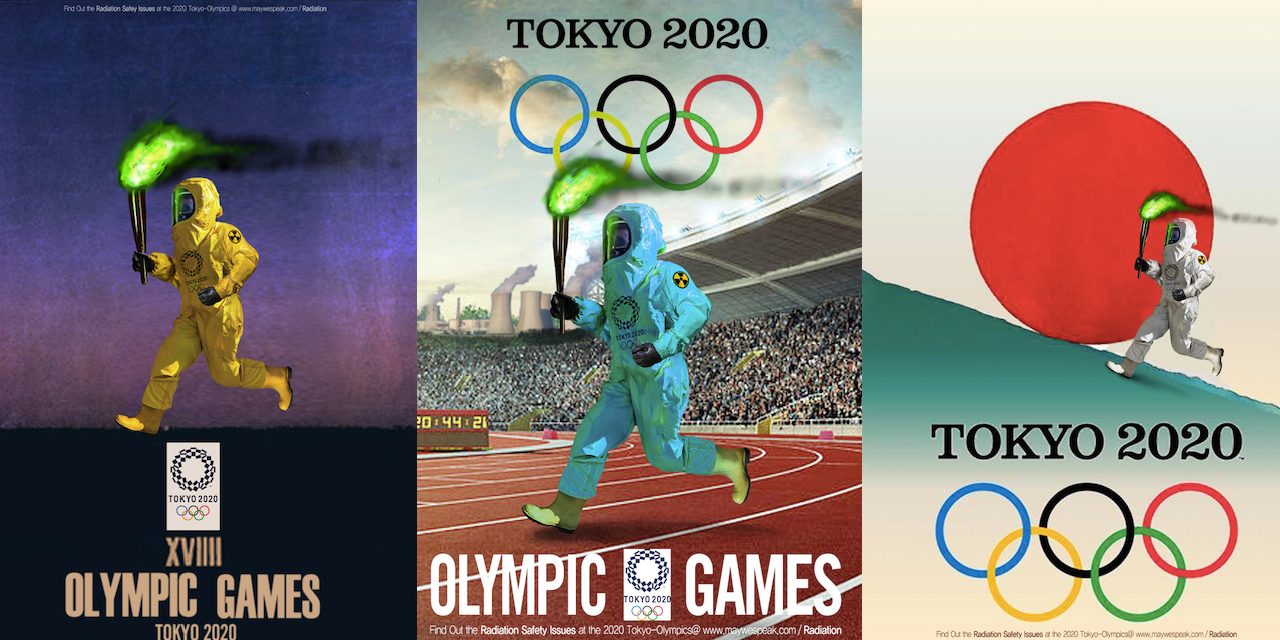VANK made a petition requesting that the International Olympic Committee (IOC) takes more interest in the radiation issue in Japan, especially with the 2020 Tokyo Olympics coming up.
In preparation for the 2020 Tokyo Olympics, Japan announced that they will be holding the baseball and softball games at the Fukushima Azuma Baseball Stadium, which is 68 km (42 mi) away from the Fukushima Nuclear Plant. The torch ceremony will also start in J-Village, a new sports area 19 km (12 mi) away from the nuclear plant. Special displays of the torch, called the “Flame of Recovery”, will also be shown around the Fukushima area to recognize the efforts of the people from disaster-affected areas who have worked so hard for the recovery of their communities. The Tokyo 2020 Torch Relay website also said that the torch relay will be making its way through provinces affected by the radiation and earthquakes to “show unison among the regions affected by the nuclear disaster”.
However, many people are worried about the safety and health risks the athletes and visitors will experience from visiting an area so close to the Fukushima power plant. As you may remember, in 2011, a massive 9.0 earthquake hit Fukushima, and as a result of the following tsunami and aftershocks, the Fukushima Daiichi nuclear power plant exploded. Japan went into an immediate state of emergency and the explosion was labeled a Level 7 by the International Nuclear Event Scale. The last nuclear explosion that large was the 1986 Chernobyl nuclear disaster.
Since then, Japan has worked on rebuilding the city, but in a recent radiation monitoring, an environmental NGO Greenpeace detected dangerous levels of radiation in the J-Village. Some spots were measured to be as high as 71 microsieverts per hour when measured on sea level. The national safety standard is 0.23 microsieverts per hour, and the normal reading of Tokyo is 0.04 microsieverts per hour. Chernobyl was off-limits for three decades and is still one of the most polluted areas in the world and visitors can only enter through a guided tour.
In response to this concern, VANK released a petition asking the IOC to take immediate action on this safety and health issue. In accordance with the Olympic Charter Article 2-10, which states that the role of the IOC is to encourage and support measures relating to the medical care and health of athletes, the IOC is responsible for any problems that occur from radiation exposure. “The Olympic Games are an international sporting event,” the petition states. “The goal of the Olympics is to have sport in the service of the harmonious development of mankind and promote a peace society.”
VANK has three requests for the IOC. First, the IOC must request that Japan bans the use of agricultural and marine products from Fukushima, in order to protect the health of athletes. Second, the IOC must request that Japan not use stadiums that are close to the Fukushima Daiichi nuclear power plant. Third, the IOC must request that Japan be transparent in releasing all of its radiation safety test results.
The Japan government must take this issue into serious consideration for not only their athletes, but the other athletes around the world who have trained and waited their entire lives to represent their country at the Olympics as well. It is not worth a lie and rushed process just for a positive image of Japan.
Written by: Erica Vinluan
Originally from Los Angeles, California, Current 4th year university student, Candidate for a Bachelor of Arts in Korean Language Flagship and minor in Business Administration at the University of Hawai’i at Mānoa, Exchange student at Korea University and Intern at VANK (Voluntary Agency Network of Korea)
